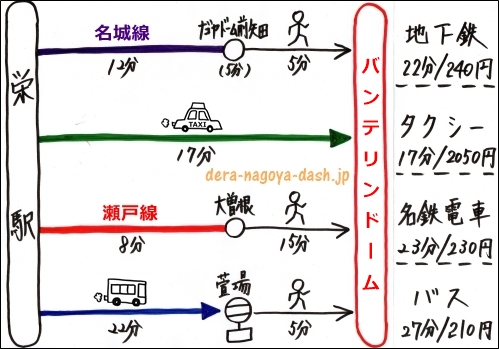Living with Senior Parents in Rent: Necessary Modifications
페이지 정보
작성자 German 댓글 0건 조회 3회 작성일 25-09-12 00:05필드값 출력
본문

When you and your elderly parents decide to live together in a rented property, a lot of practical and emotional considerations come into play.
The goal is to create a living space that feels safe, comfortable, and independent for everyone involved, while also respecting your landlord’s rules and maintaining a harmonious household.
Below is a comprehensive guide to help you navigate the process and make the necessary adaptations.
Essential Points Before Signing the Lease
Legal Protection and Lease Terms
• Check that your lease permits several occupants, particularly if your parents will stay for an extended period.
• Certain landlords limit the age or quantity of residents.
• Propose a sub‑lease or addendum that lists your parents’ names and their resident rights.
• It prevents them from appearing as single tenants and confirms their acknowledgment in emergencies or conflicts.
• Ensure the lease contains provisions for modifications or temporary repairs such as installing grab bars or a wheelchair ramp.
Insurance Policies
• Typical renters’ insurance usually protects the tenant’s belongings.
• If your parents are renting, they may need their own policy.
• Consider adding a "family policy" that covers all occupants, covering accidental damage or theft.
• Ensure the landlord’s insurance includes structural damages that could result from modifications.
Utility Payments
• Determine how to share utility expenses. Some families choose one bill with a clear repayment plan.
• If your parents rely on medical equipment that uses power (e.g., oxygen concentrators), include extra costs and confirm the electrical system can support the load.
Safety and Accessibility
• Spot possible risks like narrow doorways, high shelves, or uneven floors.
• Make a list of necessary adaptations—grab bars, non‑slip mats, 名古屋市東区 マンション売却 相談 ramps, or a stairlift if needed.
Critical Home Adjustments
Bathroom Enhancements
• Add a step‑free shower equipped with a built‑in seat and handhold.
• Utilize a shower chair that snugly fits between the seat and the showerhead.
• Set a durable, closed‑circuit TV or phone near the sink for emergency calls if necessary.
Kitchen Adjustments
• Lower cabinets or pull‑out shelves to make reaching food and dishes easier.
• Incorporate a safety rail on the countertop for standing support.
• Keep knives and sharp objects in a locked drawer or cabinet.
Living Space and Movement
• Clear clutter from high‑traffic zones.
• Ensure open paths for walkers or wheelchairs.
• Set up a call button or intercom by the front door for immediate assistance.
Lighting and Visibility
• Install motion sensors or nightlights in hallways and stairways.
• Ensure that all rooms have ample natural or artificial light.
• Think about an emergency lighting system that activates during power outages.
Bedroom Adjustments
• Use a bed with a raised frame if your parents are prone to falls.
• Place the bedside table close enough for medications and water.
• Ensure that the bedroom has a clear exit route in case of fire.
Emergency Measures
Health Records
• Store a record of all medications, dosages, and allergies in a readily reachable spot.
• Place the list in a waterproof, fire‑proof folder and create a copy for the landlord’s office.
Emergency Numbers
• Keep a list of emergency contacts, including doctors, nearby hospitals, and the landlord’s maintenance number.
• Put these numbers in a visible spot such as on the fridge or near the phone.
Fire Safety Measures
• Put smoke detectors on every floor and test them twice a month.
• Store a fire extinguisher in the kitchen and keep a fire blanket ready.
Exit Strategy
• Create a straightforward evacuation map indicating exits, stairwell positions, and the closest meeting spot outside the building.
• Practice the plan with your parents so they feel confident.
Talking to the Landlord
Transparency
• Inform the landlord early about the need for modifications.
• Offer a written proposal that explains the changes, their intent, and their temporary or reversible status.
Records
• Keep receipts for all purchases (grab bars, ramps, etc.) and share copies with the landlord if required.
• Secure a signed agreement on any sub‑lease or modification to avert later disagreements.
Scheduling Repairs
• Establish a regular maintenance schedule for modifications that might need fixing, like a loose handhold.
• Ensure that any repairs are carried out by licensed professionals, especially electrical or plumbing work.
Maintaining Boundaries
Living together can blur boundaries. Here are ways to maintain independence while providing support:
Joint Calendar
• Use a digital calendar or a whiteboard in the kitchen to track appointments, medication times, and household chores.
Polite Assistance
• Extend assistance politely and inquire if your parents would rather do it themselves.
Secluded Spaces
• Allocate a small area in the house that your parents can use exclusively for personal items or quiet time.
Money Matters
Budget Management
• Include the cost of adaptations in your monthly budget.
• Search for local grants or subsidies that aid senior home improvements.
Tax Benefits
• Certain regions permit tax deductions for accessibility‑enhancing home modifications.
Utility Assistance
• Check if there are programs that offer discounted energy rates for seniors or for households with medical devices.
Final Thoughts
Renting with elderly parents is a rewarding but complex endeavor. By addressing legalities, safety, accessibility, and communication early, you can create a harmonious environment that supports both independence and care. The key is to plan ahead, stay organized, and keep an open dialogue with your landlord and your parents. With thoughtful adaptations, the rental home can become a safe, comfortable haven for everyone involved.
- 이전글The Poker Online That Wins Clients 25.09.12
- 다음글Avoiding Common Pitfalls in Tax Planning for Solo Entrepreneurs 25.09.12




